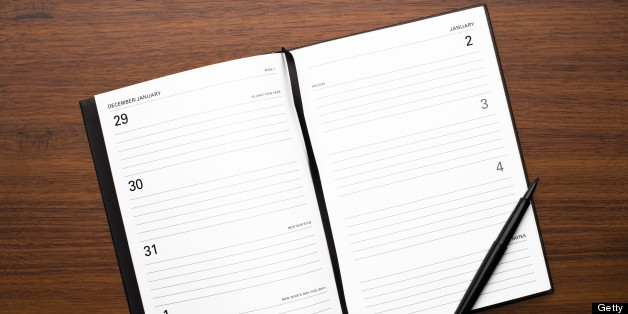We’ve all had those moments when suddenly, maybe inexplicably, you’re socked in the gut by worry. Maybe you start thinking about whether you’re going to lose your job. Or you stay awake, your eyes growing scratchy while you stare at the clock, fretting about your relationship, a growing to-do list or nothing in particular at all.
Anxiety is common — and a constant force in most of our lives. (An important distinction must be drawn between “normal” anxiety, and anxiety disorders, which affect twice as many women as men, and are also common, but are a far more serious mental condition.) Yet despite its ubiquity, many of us struggle to find healthy, effective ways to deal with anxiety when it strikes.
With that in mind, we asked a team of mental health experts for simple things to try when you feel anxiety coming on — whether it hits hard and fast, or creeps up slowly. Here, in no particular order, are a few of their preferred anti-anxiety hacks:
Identify — and then judge — your worry.

It seems almost excruciatingly obvious, but one of the first (and best) things to do when a worry creeps up is to stop and identify what, exactly you’re stressing over, said Robert Leahy, Ph.D., director of the American Institute for Cognitive Therapy, author of “The Worry Cure” (and a frequent HuffPost blogger). Is it that your work won’t get done, or that you’re concerned about how your colleagues will receive it? Then judge the worry — nicely. “Ask yourself, ‘Is it productive to worry about this? Is there any action I can take to solve the problem?” Leahy said. If there is, great. Do it. If not, acknowledge that, and remind yourself that it’s OK to accept uncertainty. You do it day-in, day-out, in all kinds of scenarios. Could you do the same now? The answer is probably yes, you could.
Schedule some worry time.

Seriously, like in your Google calendar. The idea, Leahy said, is to designate a specific time — say, 20 minutes at 3 p.m. on Friday afternoon — for dedicated worrying. “Many people are anxious throughout the day and night, and everything in their environment gets associated with anxiety,” he explained. “What if you could put those worries up on a shelf, and take them down at, say, 12 p.m. for 20 minutes? People think, ‘If it comes to my mind, I’ve got to worry about it.'” On the contrary; recognizing when the worry has cropped up, then writing it down or simply telling yourself that it can wait until your scheduled slot (if it’s not urgent), can help you regain some control and recognize that often, anxiety is ephemeral.
Sigh.

Doctors, scientists, yogis and holistic health practitioners of all stripes agree on the benefits of deep, relaxed breathing, but it’s one of those things that can seem completely impossible to do when your body is screaming for shallow, panicked gasps. So start simply. “A nice, comfortable sigh can help start the breathing process,” said Dave Carbonell, Ph.D., a clinical psychologist and author of “The Panic Attacks Workbook.” “It lets your shoulders down, helps relax your muscles and expels air, so you can slowly breathe more in, he explained.
Engage with your environment …

Though Carbonell cautioned against “leaning very heavily” on physical fixes to help combat acute anxiety, shifting your focus to your immediate environment may help you get out of your own head at critical moments, he said. “Play with the volume of your voice; shift your visual field,” he recommended. If you’re sitting, stand up; if you’re standing, move. Use your body to remind yourself that you’re not trapped, that you are in control and that there is a whole world out there, beyond what’s going on in your mind.
… And change the scene.

In a similar vein, if anxiety mounts while you’re trying to fall asleep, move. “If you’ve been lying in bed for more than 15 or 20 minutes, get up and get out of that place,” said Stephanie Silberman, Ph.D., a licensed psychologist and author of “The Insomnia Workbook.” (Silberman has also blogged for HuffPost.) Over the years, research studies, and media coverage, have put so much emphasis on getting 7 to 8 hours of sleep per night,that many people feel compelled to stay in bed even when they’re wired, and go to bed before they’re tired to “optimize” their chances of sleep, Silberman said. Don’t do that. Get, and remain, in bed only when you’re really sleepy, she advised, otherwise get up and do something relaxing, whatever that means for you — a bath, a book or even a TV show, so long as it doesn’t get you revved up.
Bore yourself.

Say suddenly the aforementioned job security fear crops up. “Repeat, for 15 minutes, very slowly, ‘I might lose my job, I might lose my job, I might lose my job’ — silently, or out loud,” Leahy said. “Initially, your anxiety may go up, but then after a few minutes, you will begin finding it’s very hard to keep your mind focused, because you’re drifting away.” By flooding your mind with the thought — kind of like a mantra, but not — it becomes so boring, you can’t pay attention to it. “You don’t try and neutralize the thought, or chase after it,” Leahy said. “You just let yourself repeat it over and over again.”
Practice, practice, practice.

The good news? “You cannot be anxious and relaxed at the same time,” Silberman said. But relaxation takes work. In addition to making sure you take time throughout the day to do things that calm you (yoga, stretching, exercise, reading a book or yes, even watching TV, Silberman said), make sure to rehearse a relaxation exercise, or “distraction technique” you can call up in more acute moments of anxiety. Maybe it’s tensing and relaxing your muscles one by one, or doing basic guided imagery — picturing yourself on a hike, for example, imagining what the leaves look like and how they crunch underfoot. Then practice it again … and again. In order for it to work, “people need to already be good at it, so you should practice at times in the day when you’re not at all anxious,” Silberman said.
